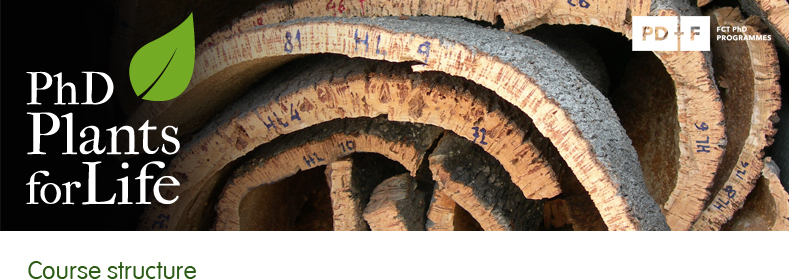| |
|
Plant Biotechnology for Sustainability and Global Economy
Coordinators
Maria Margarida Oliveira
Juan Ignácio Vílchez
Objectives
Concept and objectives of plant biotechnology.
The major challenges for the twenty-first century.
Modern tools of plant biotechnology (the best knowledge of the living world and its potential, new technologies based on manipulation of development and genome knowledge).
Understanding the functioning of plants and their limits.
Applications of the new technologies: plant biotechnology for the sustainability of the society, the environment and the market (forest, agriculture, food, pharmaceuticals and renewable raw materials).
This unit aims to the give students basic training and information necessary for an understanding of modern plant biotechnology to meet more precisely the need for better products and services (with less environmental, economic
and social costs).
Syllabus
Comprehensive view of the peculiarities of plants and their impact on development, cell and molecular biology.
Objectives and tools of plant biotechnology (functional genomics, in vitro technologies and molecular engineering)
- the new challenges.
The path from basic research to applications:
- Production of plants for food and health (nutraceuticals, biofortification)
- Production of plants for industry (raw materials, bioenergy)
- Plants as factories (production of drugs and other useful compounds) - metabolic engineering and molecular farming
- Biotic and abiotic interactions - plant protection, control of development and phytoremediation. Effector genes, regulator genes and epigenetic control in the manipulation of plant behaviour.
Strategies for conservation of germplasm and biodiversity.
Bio-safety, intellectual property, ethics and society
Case studies in Plant Biotechnology.
Evaluation
The evaluation will be based on the oral and written presentation of a topic chosen by the student from among the topics proposed by faculty. The performance during the tutorials, in a trend of continuous assessment by the tutor, will also be considered.
Main Bibliography
- Altman A., P.M. Hasegawa (2012) “Plant Biotechnology and Agriculture: Prospects for the 21st Century”. Elsevier Inc., San Diego, USA.
- Birchler J.A. (2011) “Plant Chromosome Engineering”. Humana Press. Springer Protocols.
- Christou P., H. Klee (2004) “Handbook of Plant Biotechnology”. John Willey & Sons Lt.
- Kirakosyan A., P.B. Kaufman (2009) “Recent Advances in Plant Biotechnology”. –Springer, London.
- Wang A., S. Ma. (2012) “Molecular Farming in Plants: Recent Advances and Future Prospects”. Springer Science + Business Media, London.
|




